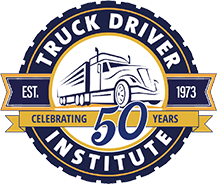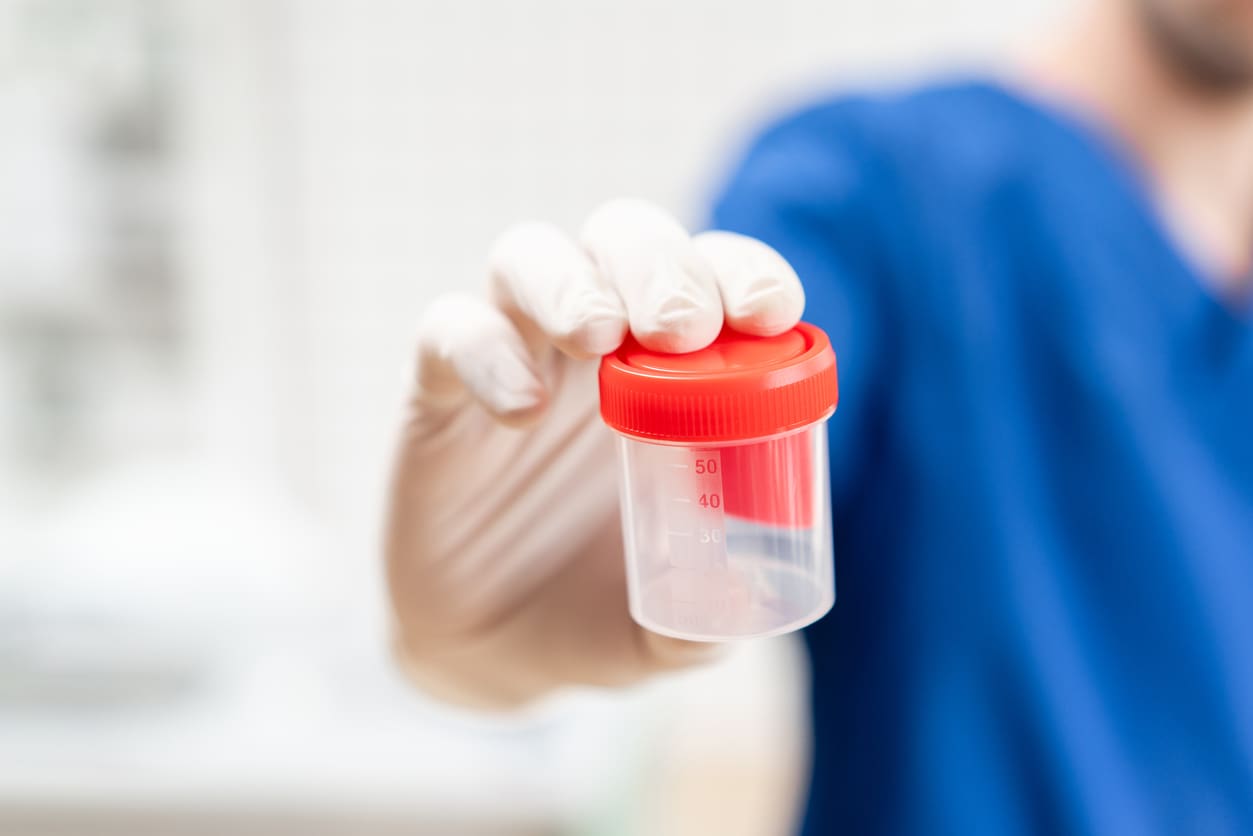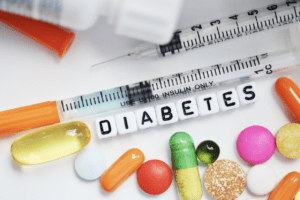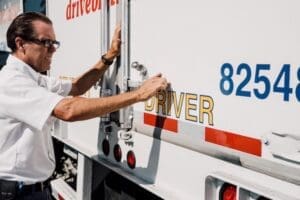Do CDL Schools Drug Test? Updated 2025
If you’re thinking about becoming a truck driver, you may wonder, “Do CDL schools drug test?” The answer is yes. All prospective drivers must pass a Department of Transportation (DOT) pre-employment drug test before operating a commercial motor vehicle (CMV).
As a truck driving school, we know exactly what these requirements entail and how the process works, which is why we’re here to answer your questions and make sure you’re prepared. Keep reading to learn when CDL schools drug test, what drugs you’ll be tested for, how CDL schools drug test, what happens if you fail a drug test, and more.
When Do CDL Schools Drug Test?
One of the first things people want to know is when they’ll have to take drug tests when working as a truck driver. While it’s not a one-and-done situation, there are clear rules you should know about when drivers will be tested.
Drug Tests Before Starting Truck Driving School
Before you can get behind the wheel of a commercial motor vehicle, you must pass a pre-employment drug test offered by a truck driving school or an employer. Truck driving schools like TDI perform these tests before you even join our training programs, ensuring that all potential drivers are drug-free. This rule applies to those with a commercial driver’s license (CDL) or a learner’s permit.
At a truck driving school like TDI, students get real-world experience behind the wheel. That means we need to ensure that our students are safe to drive before we can get started.
Drug Tests During Training
Once you are admitted to a CDL program, you should expect random drug tests throughout the year as well, ensuring that you and other drivers remain sober and unimpaired year-round.
Drug Testing After an Accident
Additionally, whether you are a trainee or a licensed driver, you are sure to be drug tested after any and all trucking accidents. These measures ensure that illicit substances have no place in the trucking world—protecting you, other drivers, and company property.
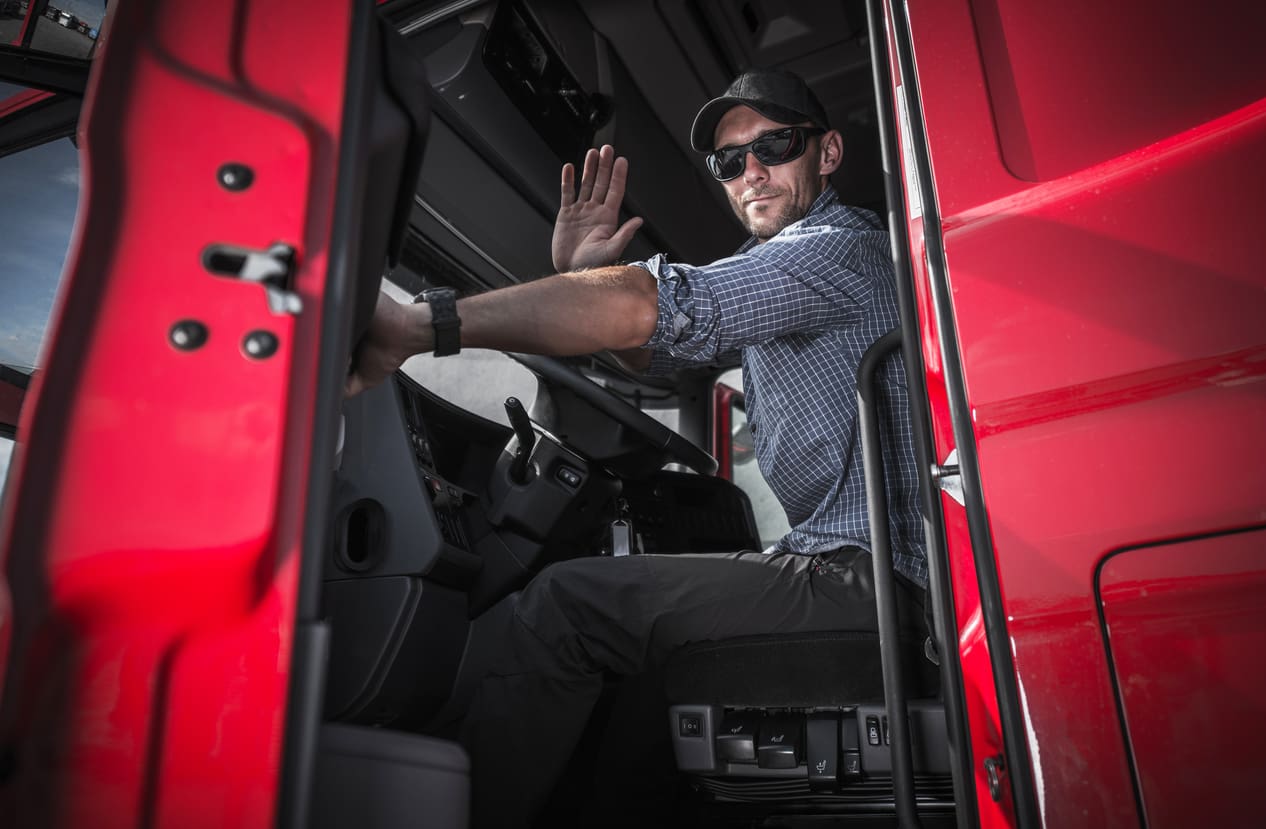
When Do Employers Drug Test?
Training is often done before you know it. At TDI, it only takes 15 days of training before you’re ready to start your career as a truck driver, so keep in mind that you will be drug tested on the job as well.
Pre-Employment Drug Tests
Employers must receive a negative DOT-approved test result before allowing a driver to operate a CMV on public roads. If you start a new truck driving job, expect to be drug tested again then.
To keep yourself and others on the road safe, the DOT requires many transportation employees to take drug tests. For the past few decades, the Federal Motor Carrier Safety Administration has administered DOT rules for any driver with a CDL.
Random Drug Testing by Employers
When you start a job isn’t the only time drivers are tested for drug use. Once you’re on the job, employers must give tests at random to employees throughout the year to make sure that truck drivers remain drug-free.
Drug Testing After an Accident
As mentioned earlier, CMV drivers are also subject to testing following accidents, depending on several criteria:
- The type of crash
- Whether or not an official citation was given to the driver
- If there’s reasonable suspicion that the driver has been drinking or using drugs while working
How Do CDL Schools Drug Test?
Now that you understand when CDL schools drug test, the next question most people have is how a CDL school is going to drug test them. There are a few different drug tests performed by truck driving schools, the most common of which is the urine test.
Urine Drug Tests
While there are several different types of drug tests, the DOT currently requires urine collection tests prior to employment as a driver of a CMV. At an authorized collection site, new drivers are required to verify their identity with a valid photo ID and provide a urine sample in a collection container.
The process usually involves a few simple steps:
- During a urine test, you are expected to produce a pee sample in a specimen container.
- After handing the container off to the attendant, the urine sample will be screened for illicit drugs and prescription medications.
- Collection-site staff will then check the color and temperature of the urine and seal the sample in two bottles with tamper-evident tape. Each bottle is tested with a different method, and the test is reported as positive only if both tests return a positive result.
If your tests come back positive, you will not be allowed to continue the program and receive your CDL. So, if you are flagged for a substance you have not consumed, be sure to request a follow-up test immediately.
Hair Follicle Drug Tests
While hair follicle testing is less common than urine testing, it can detect drug usage from up to three months back. This makes it far more reliable than a urine test.
Although hair follicle drug testing cannot be used to meet federal requirements for truck drivers, employers can use this type of test for their own prerequisite for work. However, hair follicle tests are much more expensive than urine tests, making them less common. Traces of illegal substances from up to 90 days ago can appear in these drug tests.
In 2015, the Fixing America’s Surface Transportation (FAST) Act included a provision that allowed for the Department of Health and Human Services (DHS) to create guidelines so that the DOT could accept hair follicle testing as an approved method in addition to urine testing. And more recently, legislation passed directing DHS to move forward with a plan to provide those guidelines.
The push for hair follicle tests follows a push by trucking companies to crack down further on drug use and improve highway safety, as follicle tests cover a longer period of time. However, moves to replace urinalysis with hair testing has been controversial, and some critics have pointed to inaccuracies and biases in the process.
What Drugs Do Truck Driving Schools Test For?
DOT-approved drug tests check for traces of several different types of drugs:
- Marijuana
- Cocaine
- Opiates, including opium and codeine
- Amphetamines and methamphetamines
- Phencyclidine, also known as PCP
- Heroin
Even though some states have legalized marijuana for both medical and recreational uses, the US Department of Transportation (DOT) prohibits marijuana use on a federal level. This means that even if you have legally obtained marijuana in your system, you cannot drive a commercial vehicle.
However, there are some exceptions for prescription drugs. If your doctor has prescribed you the medication and attested that it will not affect your driving ability, you will not be penalized. But remember, it is important to tell your driving school about any medications you’ve been prescribed so they don’t suspect you of illegal activity.
Additionally, these tests also flag blood alcohol content over 0.02%, which means that it’s crucial that drivers have not had even one drink before testing.
While the DOT requires that driving schools and trucking companies test for these substances, some employers may check for the use of other drugs.
What Happens If I Don’t Pass My Truck Driving School’s Drug Test?
But what happens when a driver doesn’t pass a drug test, either before or during employment? That employee is required to immediately stop driving CMVs and must participate in the DOT’s return-to-duty process, which includes frequent testing and monitoring by a substance abuse professional. The process takes twelve months and makes getting a job during that time period extremely difficult and unlikely.
Return-to-duty testing is required of those who test positive for drug or alcohol use and of anyone who refuses to take a DOT-mandated drug test.
Additionally, drivers who return a positive drug test will be reported to the Drug and Alcohol Clearinghouse, an online database maintained by the Federal Motor Carrier Safety Administration (FMCSA). This database gives employers and state agencies important info about trucker drug and alcohol violations. All employers are required to check the Clearinghouse list before hiring a new driver, and if your name is on the list, some companies may refuse to hire you.
How Does TDI’s Truck Driving School Drug Test?
Because safety is so important, getting tested for drug and alcohol use is a routine part of being a truck driver. On the road, you’re not only responsible for yourself, but for the safety of other drivers as well as your cargo. That’s why, in addition to classroom and driving-range instruction, TDI provides a drug screen and DOT physical exam—to get you prepared for work on the road.
It’s important to know when, why, and how truck driving companies give drug tests so that you’re ready to go as soon as you get your CDL.
Give us a call if you have any questions about TDI or if you want to enroll today.
Frequently Asked Questions About Drug Testing for CDL Holders
Why do truck driving schools drug test drivers?
Because commercial motor vehicles are often large and challenging to operate, it is imperative that truck drivers remain sober and alert while driving. By screening for marijuana, cocaine, opiates, amphetamines and methamphetamines, and PCP, trucking schools ensure that their prospective drivers will not endanger themselves or others while on the road. Drug testing ensures that the drivers operating large motor vehicles are alert, aware, and unimpaired, keeping both truckers and other motorists safe while on the road.
What is the most common drug test for truck drivers?
The standard drug test for truck drivers is a 5-panel urinalysis mandated by the Department of Transportation (DOT). This test screens for marijuana, cocaine, amphetamines, opiates, and phencyclidine (PCP). It’s crucial to maintain safety on the roads by ensuring drivers are not impaired.
What happens if you fail a hair follicle test for a CDL?
Failing a hair follicle test as a CDL holder typically results in immediate removal from safety-sensitive duties. The driver cannot resume these responsibilities until they complete a return-to-duty process supervised by a DOT-qualified substance abuse professional. This process includes further evaluation and possibly treatment for substance abuse.
Do local CDL drivers get drug tested?
Yes, local CDL drivers are subject to the same federal regulations for drug testing as interstate drivers. These regulations are enforced by the FMCSA and require pre-employment, random, post-accident, reasonable suspicion, and return-to-duty drug testing to ensure public safety.
What happens if you fail a drug test while working for a trucking company?
A CDL driver who fails a drug test is immediately removed from performing safety-sensitive functions. The incident triggers a mandatory process that includes evaluation by a substance abuse professional and may lead to job termination or suspension depending on company policy and the severity of the violation.
How many people fail the DOT drug test?
Recent data from the DOT and FMCSA shows a concerning number of failures in DOT drug tests. This underscores the need for stringent testing protocols and robust safety measures within the trucking industry to prevent accidents and ensure road safety.
Can you perform a hair follicle drug test for DOT compliance?
Currently, hair follicle drug testing is not accepted for DOT compliance. The DOT mandates urinalysis for its testing requirements. However, some non-DOT employers opt for hair follicle tests due to their longer detection period for drug metabolites.
Does Walmart drug test its truck drivers?
Walmart, like many large trucking employers, adheres to federal regulations requiring drug testing for all CDL drivers. This includes pre-employment screening and random drug testing to ensure compliance with safety standards and prevent drug-related incidents on the job.
What substances can cause a false positive on a hair follicle drug test?
Certain medications, foods, or substances can sometimes lead to false positives in hair follicle drug tests. Common culprits include some prescription painkillers, antidepressants, and even some over-the-counter medications. It’s essential for drivers to disclose all medications they are taking to their employers and testing centers.
How long can drugs be detected in a hair follicle test?
A hair follicle drug test can detect drug use for up to 90 days. This is because hair grows at a constant rate, and drugs circulating in the bloodstream can be incorporated into the hair shaft, where they remain as the hair grows.
What are the consequences for trucking companies if their drivers fail drug tests?
Trucking companies face severe penalties and operational disruptions if their drivers fail drug tests. Penalties can include fines, increased insurance premiums, and loss of reputation. Moreover, companies are responsible for ensuring that their drivers complete the necessary return-to-duty process before resuming safety-sensitive functions.
What steps should a driver take if they believe their drug test result was a mistake?
Drivers who believe their drug test was inaccurately reported should immediately request a retest and consult with a substance abuse professional to review the results. They should also provide documentation of any medications or substances that might have influenced the test outcome.
How can trucking companies ensure compliance with drug testing regulations?
Trucking companies can maintain compliance by conducting regular audits of their drug testing procedures, providing training for their safety officers, and ensuring all testing is performed by certified laboratories. Staying updated with the latest DOT regulations and FMCSA guidelines is also crucial for compliance and safety.
Get Started
Get your Class A CDL in our friendly, supportive CDL training program. TRAIN with experienced instructors – multiple good-paying, secure job choices with benefits available for eligible graduates. EARN $700 – $1000+ / week to start as a truck driver. Get started today by filling out the form below. We look forward to hearing from you!
